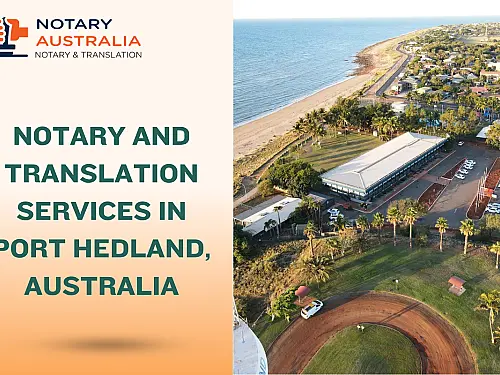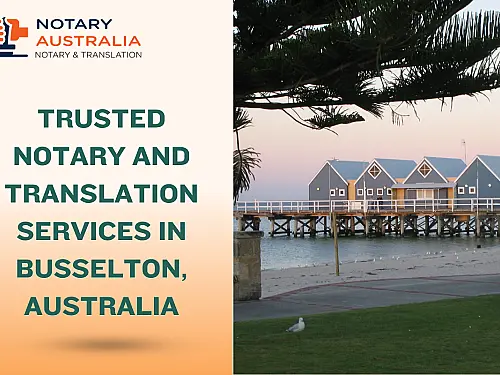



Court Document Notarization in Australia: What You Must Know Today
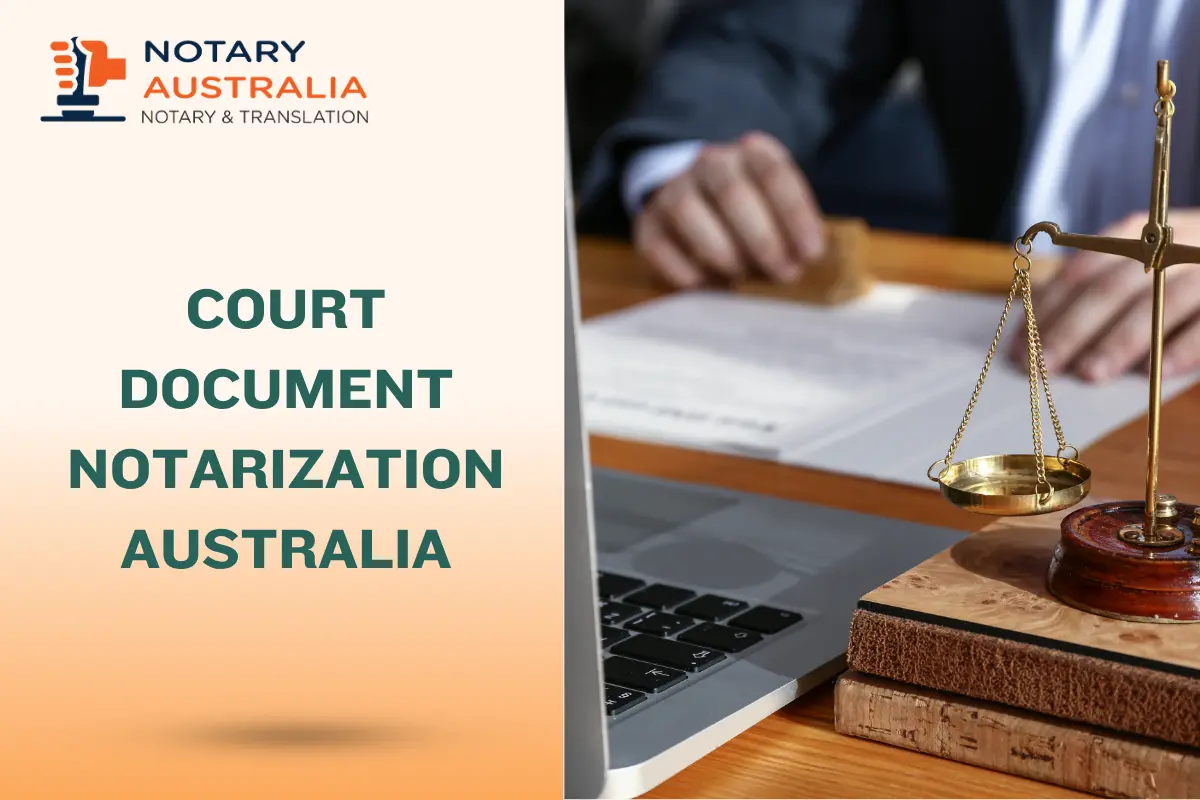
Table of Contents
Navigating the legal system can be complex, especially when court documents require proper notarization. Whether you're dealing with affidavits, subpoenas, court orders, or divorce papers, notarization ensures your documents are legally valid and recognised by courts, tribunals, and government agencies in Australia and abroad.
In this comprehensive guide, we’ll cover everything you need to know about notarizing court documents in Australia — from types of documents, legal requirements, online notarization options, fees, to international use.
What Is Court Document Notarization?
Court document notarization is the process of verifying and certifying legal documents by an authorised notary public. A notary confirms your identity, witnesses your signature, and applies an official seal to validate the document’s authenticity.
Common court documents that require notarization include:
- Affidavits
- Divorce decrees
- Custody orders
- Court summons
- Subpoenas
- Legal complaints
- Power of attorney forms
- Court-ordered contracts
Notarization makes your documents legally acceptable in court and often mandatory for overseas submission.
When Do You Need a Notary for Court Documents?
You may need notarization in the following scenarios:
- Filing affidavits or sworn statements in court
- Submitting court documents for immigration or visa processing
- Authenticating family court orders (e.g., custody, divorce)
- Real estate or probate-related court submissions
- Using Australian court documents abroad (requires apostille or legalisation)
Courts may reject unsigned or improperly notarized documents, which can delay your case or cause legal setbacks.
Types of Court Documents That Require Notarization
Below are some examples of documents frequently notarized for legal proceedings:
| Document Type | Common Use Case |
|---|---|
| Affidavits & Statutory Declarations | Used in legal claims, appeals, and civil matters |
| Divorce Decrees | For overseas recognition or remarriage requirements |
| Custody Orders & Parenting Plans | Required for cross-border family matters |
| Subpoenas | Legal notices for witnesses or evidence |
| Power of Attorney | Often filed with courts in elder care or property matters |
| Litigation Documents | Includes complaints, responses, and disclosures |
| Probate Court Orders | Essential for estate and will executions |
| Tribunal or Government Appeals | Administrative and immigration law applications |
How to Get Court Documents Notarized in Australia
There are three main ways to notarize court documents:
1. In-Person Notarization
Visit a licensed notary public in your city — Sydney, Melbourne, Brisbane, Perth, Adelaide, Canberra, or Gold Coast. Bring valid ID and the documents you need notarized. The notary will verify your identity and witness the signing process.
2. Online Notarization
Using a remote or electronic notary, you can notarize documents through a secure video call. This is ideal for urgent cases or if you're located outside metro areas.
Common keywords related to this include:
- Online court document notarization
- Virtual notary for court papers
- Digital notarization Australia
3. Mobile Notary
For extra convenience, you can book a mobile notary who travels to your home, office, hospital, or detention centre to notarize court documents on-site.
Legal Validity and Court Acceptance of Notarized Documents
Most Australian courts accept notarized documents as valid evidence of authenticity. However, the document must:
- Be signed in the presence of the notary
- Bear the notary’s seal and signature
- Include all necessary attachments and identification
For international use, you may also need:
- Apostille certificate (via DFAT for Hague Convention countries)
- Embassy/Consular Legalisation (for non-Hague Convention countries)
Cost of Notarizing Court Documents in Australia
Notarization fees vary depending on:
- Type and number of documents
- In-person vs. online vs. mobile service
- Additional services like apostille, translations, or urgent processing
| Service Type | Estimated Fee Range |
|---|---|
| Standard Court Document | $70–$150 |
| Online Notarization | $80–$130 |
| Mobile Notary Service | $120–$250 |
| Apostille & Legalisation | $100–$300+ |
Always ask for a fixed quote or check the provider’s fee structure to avoid surprises.
Common Mistakes to Avoid
- Signing documents before meeting the notary
- Using expired or incorrect ID
- Sending scanned copies instead of originals
- Skipping translation for foreign-language documents
- Assuming any document with a signature is valid for court
Not fixing these issues can result in rejected court filings or legal delays.
Notarizing Translated or International Court Documents
If your documents are in a language other than English, courts may require NAATI-certified translations before notarization.
For overseas use:
- Obtain notarization first
- Then submit for apostille (DFAT) or embassy legalisation
- Some countries also ask for bilingual affidavits
Booking a Notary for Court Papers
Booking a notary for court documents is easy and quick:
Step-by-Step Booking Process:
- Choose Service Type: In-person, online, or mobile
- Prepare Documents & ID: Check court requirements
- Confirm Appointment: Same-day and 24-hour services often available
- Meet Notary & Sign: Don’t pre-sign before verification
- Receive Certified Copy: Physical or digital based on your request
Same-Day and Mobile Notary Options
Need notarization urgently? Many notaries offer same-day or mobile notarization for court documents, including weekends and after-hours support.
Look for:
- 24 hour court document notarization
- Emergency notarization for court filings
- Doorstep notary for legal documents
FAQs on Court Notarization in Australia
Q: Can I notarize court documents online in Australia?
Yes, many licensed notaries now offer remote services that comply with Australian law.
Q: Are notarized documents accepted in court?
Yes, notarized documents are generally accepted if they follow procedural and legal requirements.
Q: Do I need an apostille after notarization?
Only for international use. Domestic courts do not require apostille.
Q: Is mobile notary more expensive?
Typically yes, due to travel fees. But it offers great convenience for urgent or location-specific cases.
Final Thoughts
Court document notarization is an essential step in ensuring your legal documents are accepted, trusted, and enforceable. Whether you’re managing a family court case, an immigration appeal, or business litigation — having your papers properly notarized by a licensed notary can make all the difference.
Make sure you choose the right service based on urgency, location, and type of document. With online and mobile options available across Australia, it’s never been easier to get your court documents notarized — fast, securely, and legally.

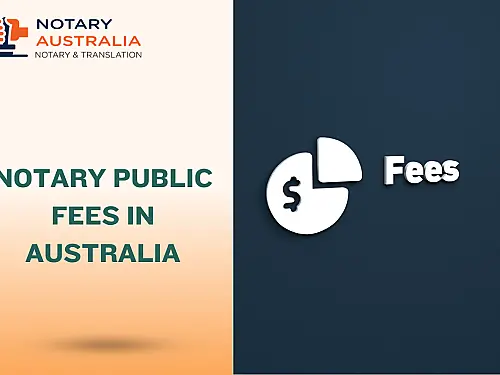

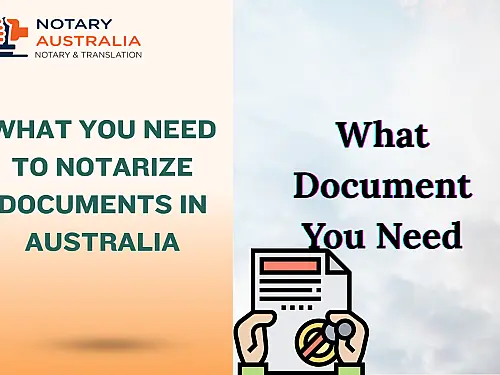
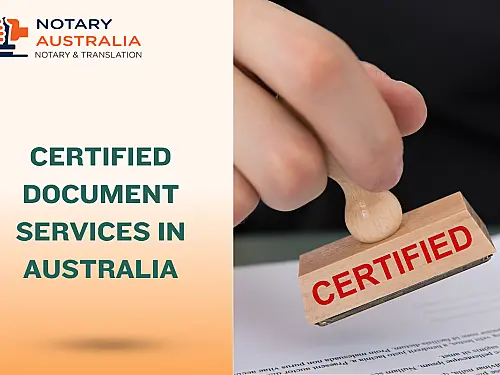
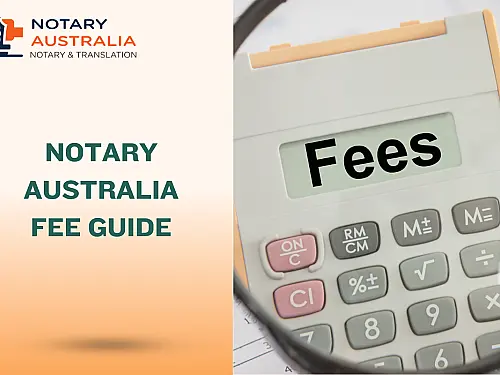

-thumb.webp)

